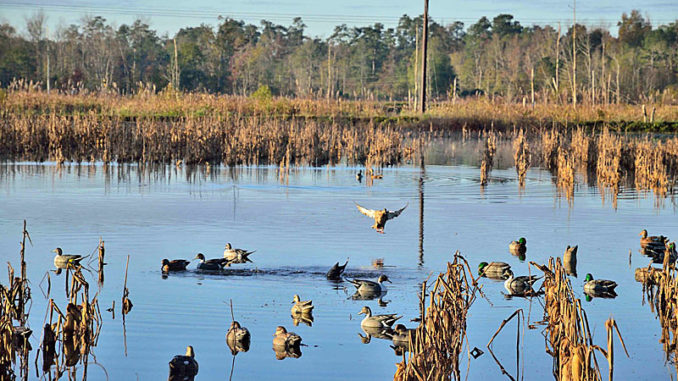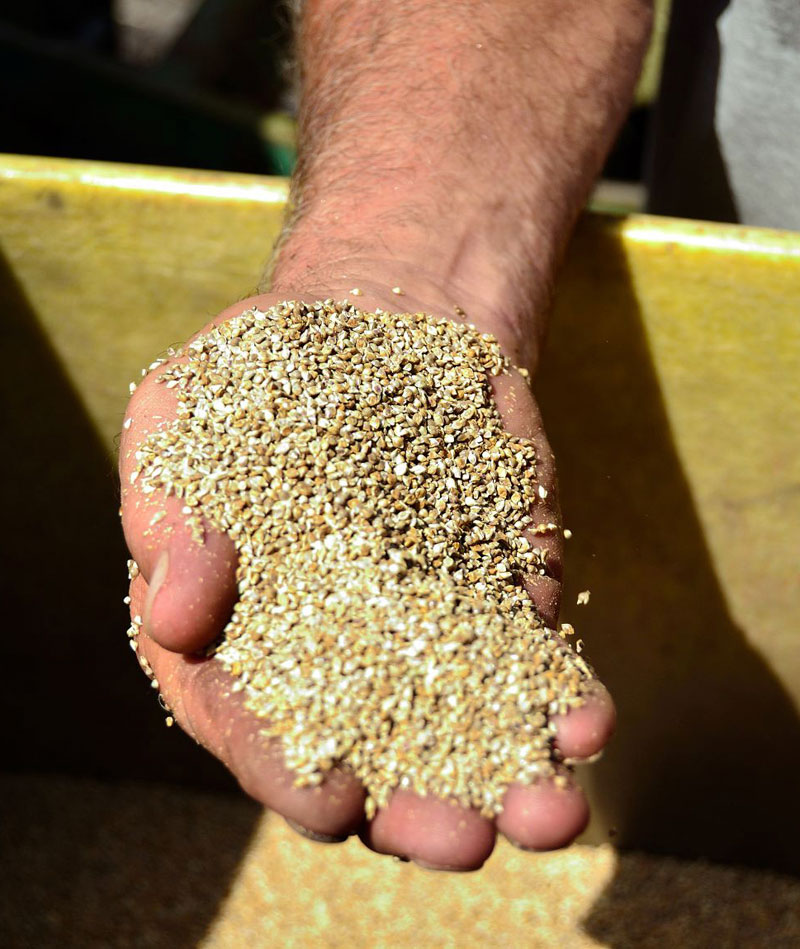
Add nutrition to your wildlife’s diet
Landowners with the space, capabilities and resources should always consider cultivating portions of their properties for nutritional production for their native wildlife populations.
Wildlife must consume enough food to meet their daily nutritional requirements. Obtaining food for humans is as easy as walking to the icebox, the pantry or the nearest café or restaurant delivery option for a nutritional, sufficient meal. But deer and other wildlife must make a living off the land. On some properties, food can be very abundant — but scarce and marginal on others.
Landowners can promote the health and productivity of their wildlife with food plots featuring the specialized seeds available on the market today. But those seeds aren’t always created equal. And landowners need to pay close attention to the specific variety and cultivar before they make a purchase.
Plants are genetically pliable where scientists can produce seed to express a specific trait in a plant, such as disease resistance. Or they can be developed to allow plants to grow under specific conditions.
Better seed
Large companies such as Monsanto and Pioneer make huge efforts to come up with a better seed for their customers around the globe. On a smaller scale, landowners looking to plant something in their food plots or waterfowl impoundments can choose a variety that produces the traits that will work the best on their properties.
Unfortunately, there aren’t too many companies, if any, investing millions in genetic modification of seed for wildlife plantings. But landowners with an interest in promoting wildlife on their land can benefit from the ongoing research and development of genetically modified seeds produced in the agriculture industry.
Specific varieties can help landowners choose a better option that works best on their specific properties to meet their goals.
Important factors
So, what types of varieties are available that would make a difference to landowners planting for wildlife? A landowner has to consider what aspects of a seed variety are considered important. Seeds are hybridized for a long list of reasons, and they are modified to make farmers more productive in the regions in which they live.
Pioneer is the world’s resource for genetically modified corn. Since 1920, Pioneer’s agronomists have made monumental advances in genetic modifications to corn to favor preferred traits in a wide range of climates around the world.
For corn, the most-important factors are standability, stand uniformity, drought and disease-tolerance, carbohydrate content, stalk height and maturation period. At the end of the day, farmers choose the right seed variety for their specific farms to produce the highest yields. Landowners planting food plots can springboard off the 90 years of research and development to purchase the right seed varieties for their own projects.
Height, maturation period

While landowners want the best disease- and drought-resistance available, most people looking at seeds for food plots will typically choose a specific cultivar based on plant height and maturation period. These two aspects of growth can be very important for landowners planting waterfowl impoundments for height limitations and for perfectly timing their crop-maturation date. But plant height can also be an important factor in other areas for other types of wildlife species, such as bobwhite quail, mourning dove and wild turkey.
Fortunately for landowners, seed companies catering to wildlife enthusiasts have already selected specific cultivars that will cater to certain wants and needs. Where it counts the most is in waterfowl impoundments where maturation date and a short plant height can be superior traits.
Jim Riley at Warrior Wildlife Systems (406-580-4036) sells a wide range of specific hybrids for landowners. One of his premium seeds for duck hunters is made by CanaMaize Seed Inc. It is a conventional corn, but it has a 65-day maturation period and is short-statured — perfect for planting in duck impoundments. And it can be perfect for duck impoundments that have the ability to irrigate.
The irrigation factor
A short maturation of 65 days is wonderful for waterfowl impoundments, but these fields must have the capability to irrigate because of the mid-summer planting. The early stages of a corn crop must have adequate soil moisture, and a mid-summer planting can be tough on the small, tender plants in the southern sun.
There are other good cultivars for waterfowl impoundments that aren’t corn. Warrior sells a short-height grain sorghum that has a relative maturity of 85 to 92 days. This seed can be planted in waterfowl impoundments that require a relatively short maturation schedule, and the short height makes it ideal for impoundments with a minimal-height flooding ability.
If landowners want to go right to the source, there are companies that sell directly to farmers dozens of specific varieties of seed. Companies such as Harveys (252-523-9090), based out of Kinston, N.C., sells the latest cultivars of agriculture seed that are available every year. They can provide fact sheets for each cultivar and help landowners make a decision on which hybrid to purchase based on their site.




Be the first to comment